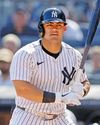
MLB made clear it did not want to maintain the century-old status quo that allowed individual minor leagues to define their own geographical footprints or dictate terms of affiliation agreements with major league organizations. MLB wanted minor leagues affiliations that were more permanent, that made greater geographical sense, that were more cost-efficient and that had higher facility standards.
And MLB wanted fewer minor league affiliates overall. Its plan called for 120 of them—four apiece for each of the 30 organizations—rather than the 160 ticket-selling minor league affiliates that operated in 2019. To achieve that goal, MLB intended to eliminate the entire Rookie-advanced and short-season classifications.
Against the backdrop of a Professional Baseball Agreement set to expire on Sept. 30, MLB and Minor League Baseball began negotiating a new working agreement.
Then the coronavirus hit. PBA negotiations went on the back burner in mid-March, when MLB halted spring training, and remained there for three months as MLB began an often contentious negotiation with the players’ union about a plan to return to play. The two sides reached an agreement in June and a 60-game major league season began on July 27.
That resumption of play allowed MLB to resume PBA negotiations with Minor League Baseball—and for information to trickle out about what a reorganized minor leagues could look like in 2021. Five of the more dramatic possibilities for a new-look minor leagues are presented here, though it’s important to note that none of these scenarios is guaranteed to come to pass.
Bu hikaye Baseball America dergisinin September 2020 sayısından alınmıştır.
Start your 7-day Magzter GOLD free trial to access thousands of curated premium stories, and 9,000+ magazines and newspapers.
Already a subscriber ? Giriş Yap
Bu hikaye Baseball America dergisinin September 2020 sayısından alınmıştır.
Start your 7-day Magzter GOLD free trial to access thousands of curated premium stories, and 9,000+ magazines and newspapers.
Already a subscriber? Giriş Yap

THE SERVICE TIME CONUNDRUM
MLB’s byzantine service time rules cloud rookie status and now PPI eligibility

LUIS TIANT WAS MLB'S MOST SUCCESSFUL CUBAN PITCHER
On a scouting trip to Cuba in 1957, Bobby Avila discovered 16-year-old righthander Luis Tiant on the island's Juvenile League all-star team.

ORGANIZATION REPORT
Outfielder Heston Kjerstad's career has been unique, to say the least.

TOP 10 NL EAST
From the moment Thomas White stepped on a high school mound, he was viewed as the top lefthander available in the 2023 draft.

PREPARATION PAYS OFF
lowa politician J.D. Scholten makes a surprising return to pro ball at age 44

MAKING THE GRADE
Assessing the future value of graduated National League prospects

TOP 10 NL WEST
Even in high school, Bryce Eldridge could hit the ball a mile. The 6-foot-7 righthander could also touch 96 mph off the mound.

Wood Has Towering Upside- Nationals rookie James Wood also stands 6-foot-7 and also has game-changing power.
Aaron Judge and Oneil Cruz are 6-foot7 sluggers who stand out for their power in this year’s MLB Best Tools voting. Wood spent half of this season with Triple-A Rochester before making his MLB debut on July 1. While he was in the International League, he captured managers’ attention. Wood unanimously won Best Power Prospect and also claimed Most Exciting Player in a survey of league skippers. Wood hit .353/.463/.595 with 10 home runs in 52 games for Rochester. His .242 isolated slugging was the best for a player 21 or younger at Triple-A this season.

ROAD BLOCK?
Scholarship expansion puts mid-majors at a major disadvantage on the road to Omaha

ROYALS REVIVAL
A revamped and rejuvenated farm system has Kansas City ready to rebound